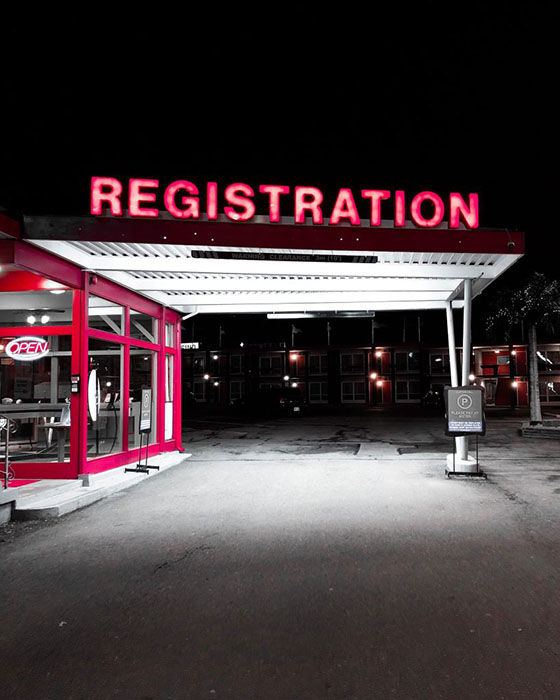How to Register Your Sweepstakes

Sweepstakes are a great marketing tool as long as you can navigate all the laws and regulations that govern them. There are both federal and state laws to consider. Once your prize values hit a certain monetary threshold, you need to register your sweepstakes in some states.
The Big 3 States
Currently, three states require sweepstakes to be registered. They are Florida, New York, and Rhode Island. Each state has different rules. Florida requires sweepstakes to be registered at least seven days prior to the start of the promotion, but New York requires 30 days’ notice. At least that is what the statute says for New York, but they do not currently enforce this deadline.
Rhode Island is a bit different from the other states. If you have a retail location in Rhode Island or if you sell items online, you may need to register your sweepstakes.
Keep in mind that the official rules need to be finalized before you can register for your promotion. Part of the registration process is submitting the official rules to the states. The states actually do read the rules and if they take any issue with them, they will send a letter via snail mail asking the sponsor to remedy the issue, or issues, at hand.
One thing to keep in mind is that failure to register by a state deadline may result in late filing fees. Furthermore, you may be subject to a late filing fee if you register on time, but a state takes issue with the rules that were provided to them. That means once the rules snafu is cleared up, you must start the registration process again and that is the date the states see as the day you registered the promotion. The state of Florida adheres to its deadlines.
The Magic Number Is $5,000 or Maybe $500
The biggest factor regarding sweepstakes registration is the total value of the prizes. You must add the value of all prizes being given away in the sweepstakes. If the total is $5,000 or less, you do not need to register the sweepstakes in Florida or New York. The magic total for Florida and New York is $5,001 or above. At that aggregate prize value, you need to register and bond the sweepstakes in New York and Florida.
Rhode Island’s prize value threshold is much lower at $501. But the good news is that Rhode Island doesn’t require a sponsor to obtain a bond for sweepstakes.
What Is Bonding?
A sweepstakes surety bond is designed to protect the public from fraud by guaranteeing that the full value of the prizes will be awarded. Once you have hit the $5,001 prize value threshold that requires registration in Florida and New York, you will also have to bond your sweepstakes. The bond amount is based on the total value of all prizes to be awarded. If you are giving away $6,521 in prizes, you must bond the sweepstakes for $6,521.
Your company may obtain a surety bond from your insurance agent/broker. Typically, there is an underwriting process and you will need to provide a copy of the official rules so the underwriter can see all the elements of the sweepstakes (method of entry, duration, number of prizes, prize value, etc.). Once the bond is issued, it must be submitted as part of the registration process.
Bonding is a time-consuming process which is why many companies use third-party promotion companies, such as ESG, to administer the sweepstakes (write rules, register, bond, select winners, etc.).
Close Registration at the End of the Promotion
You have run a successful sweepstake. It generated social media buzz, increased sales and you have been awarded all the prizes. Your sweepstakes are complete…almost. States require registration and bonding to make sure your sweepstakes were run properly and followed the official rules. As part of this process, they want to know that the prizes were awarded as stated in the official rules.
Now that your sweepstakes are over, you must “close” your sweepstakes with the states. With regard to Florida, you have 60 days after the last winner is notified to submit your list to the states. For New York, you have 90 days after the last winner is determined to submit the list. Rhode Island does not require a list of winners. ESG recommends that you submit your list 60 days after the sweepstakes have ended (and you have awarded all the prizes). If not, you may need an extension with each state if it takes too long to provide the completed winner’s list.
To close registration, you must submit an official winners list to each state. It can be a simple excel sheet and the list must include the following information for ALL winners: first and last name, mailing address, prize description, approximate retail value of each prize, and the date the prize was awarded. If the prizing is valued at less than $25, the states don’t want to know about it. However, if the prizes are awarded digitally (think a gift card or Uber code), then the states have been known to accept an email address for a winner in lieu of a physical mailing address.
Sometimes, the states will contact winners to make sure they did win and receive the prize. So, don’t think that the information you send goes into a black hole and that you can put any information on there that you want. The states are looking. Once you send this information to each state and they accept it, they will send a letter informing you that the promotion is closed and you are ready for your next one. The states will also send a letter if they have an issue with the winner list they received asking for you to remedy it.
What Are My Options?
If you don’t want to deal with all of these steps, you have a few options. You can decrease the number of prizes or give away prizes of a lower value so that you do not hit the dollar amount that triggers registration. You can also structure your sweepstakes so that people enter during different entry periods (i.e., daily, weekly, monthly) to win different prizes. The catch is that entries can’t roll over from one entry period to the next and the aggregate value of prizing must remain under $5,000 or $500, as applicable for each entry period. For example, you can run sweepstakes with five separate daily entry periods and the prizing for each day could be up to $5,000 in value. Since entries don’t roll over from one day to the next, the aggregate value of prizing doesn’t exceed $5,000. You can also exclude residents of Florida, New York, and/or Rhode Island from entering your sweepstakes. Keep in mind that both Florida and New York are highly populated states, so excluding them may not be in your brand’s best interest depending upon your marketing goals.


